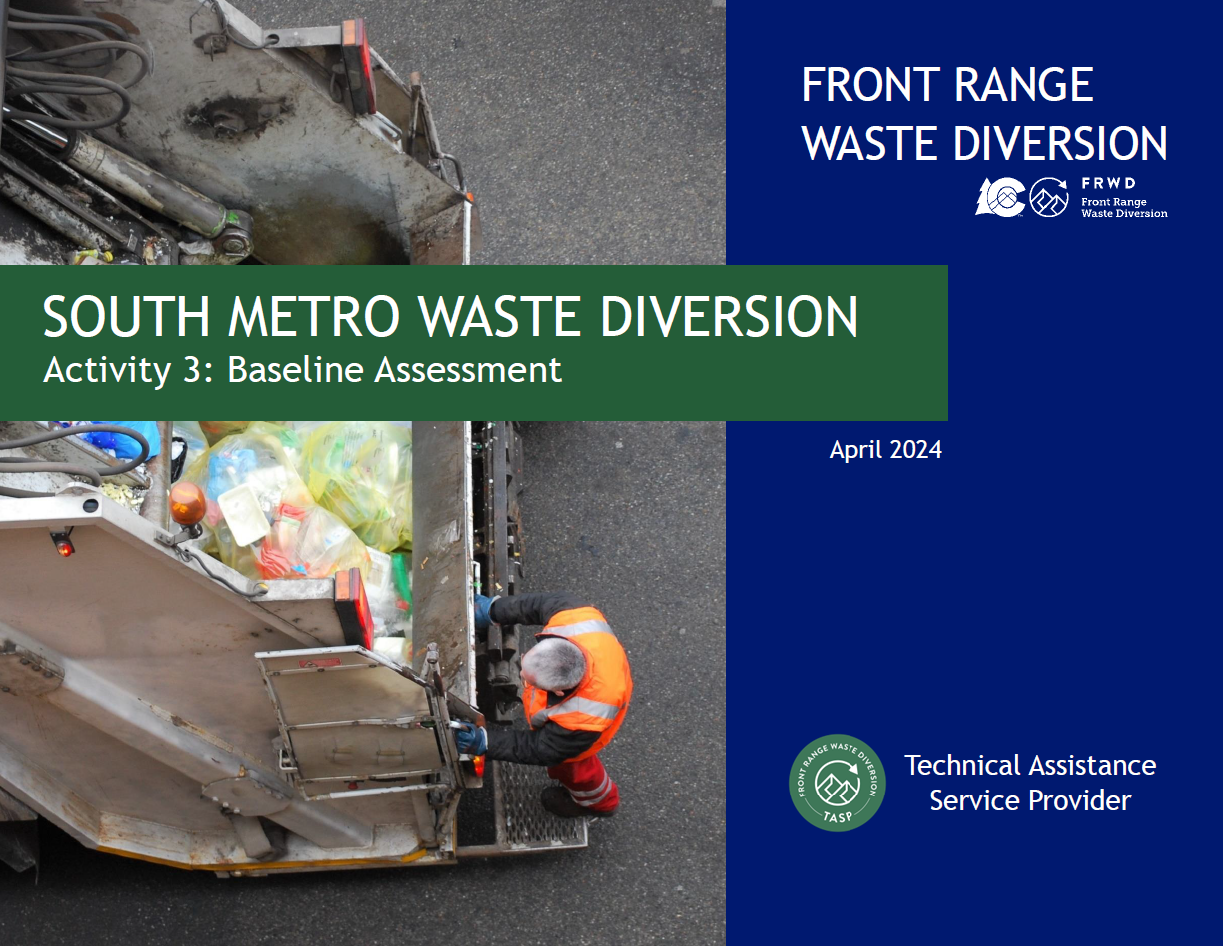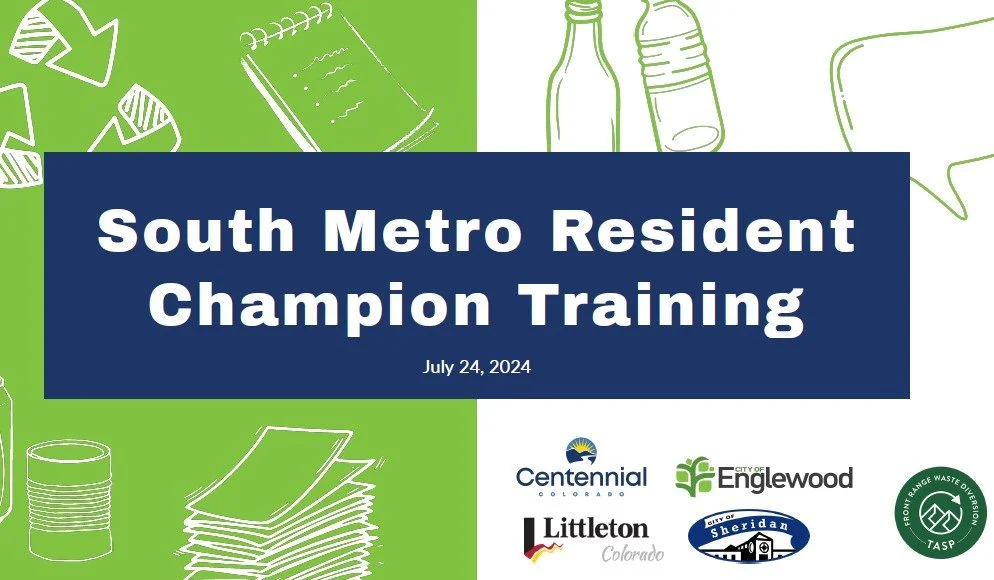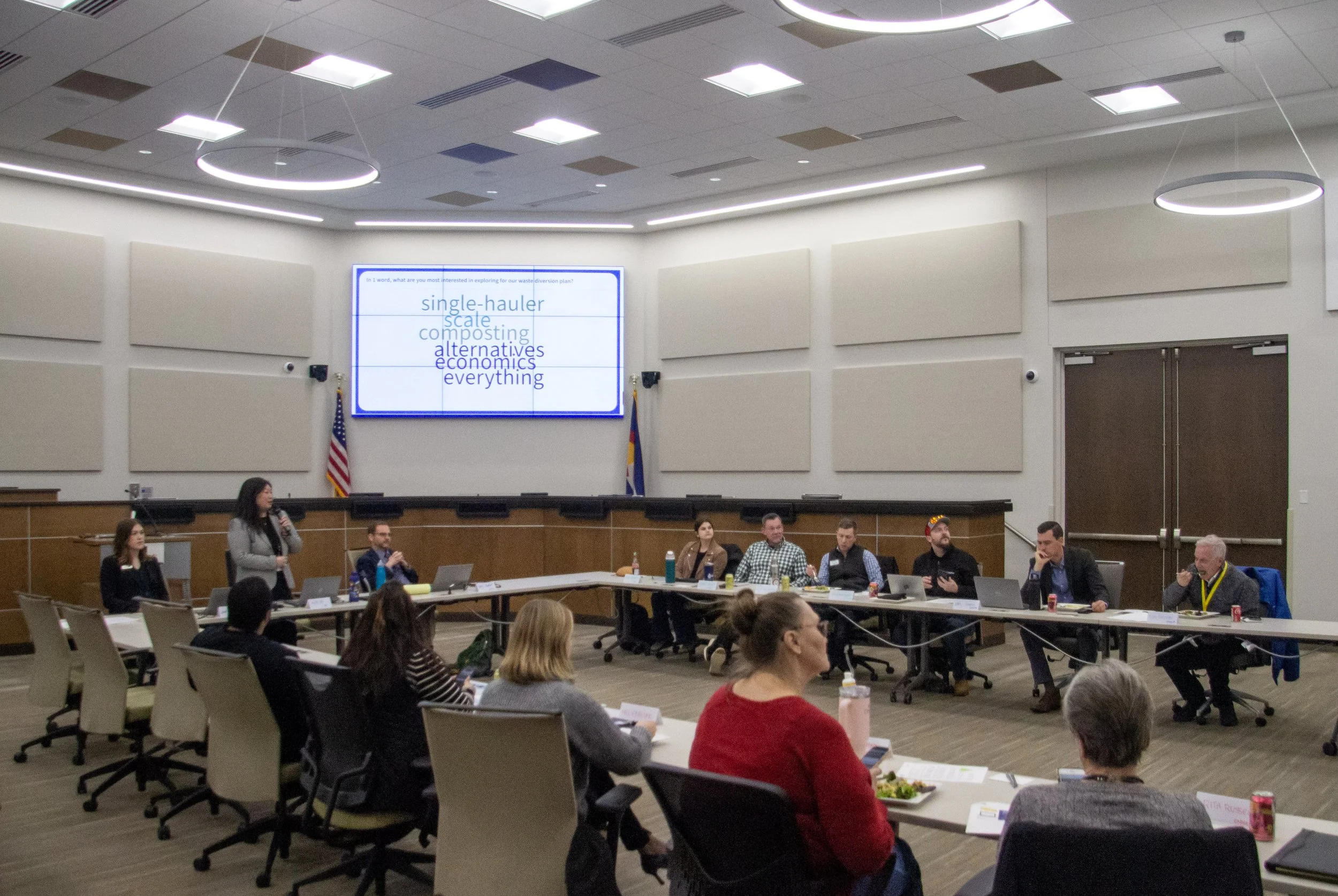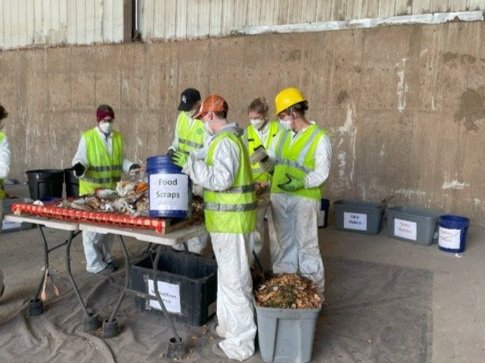
Working towards improved waste diversion in the South Metro Region.
Reports
Baseline Assessment
The Cities of Centennial, Englewood, Sheridan, and Littleton (collectively known as South Metro) seek to progress to a system that favors equitable waste reduction and waste diversion strategies driven by data and best practices.
As part of this effort, the Technical Assistance Service Provider (TASP) project team interviewed Cities, researched, and assessed the baseline for waste and recycling in the region.
Hauler Engagement
The TASP Project Team engaged with waste haulers servicing the region.
The TASP team conducted one-on-one interviews with eight (8) waste haulers servicing and provided a summary of the hauler interviews to the South Metro Project Team.
Residential Survey
A residential survey was conducted to collect data and analyze by City and for the South Metro region. The results of this survey will be used to better understand the common motivating factors and barriers to residential participation in South Metro’s solid waste management systems.
Focus Groups
Three focus groups were held virtually to include multi-family residents, businesses, and disadvantaged communities.
The results of the research will be used to better understand the common motivating factors and barriers to residential participation in South Metro’s solid waste management systems.
Community Engagement
A community engagement strategy for the South Metro Waste Diversion Plan was developed to include a Website, Engagement Collateral, and a Resident Champion Training.
Regional Waste Summit
A Waste Summit was conducted to share information collected to date, including a baseline infrastructure evaluation, interviews with hauling companies, public engagement, and a waste characterization study to elected officials representing the four cities in the South Metro region. At the meeting, the project team sought out elected official’s input about potential gaps in the waste system.
Waste Generation
Current waste tonnages were modeled including tons generated, tons diverted, tons landfilled, tons by generating sector, tons by individual city, and tons for the South Metro region.
Tons were projected including tons per year through 2033 and tons assuming all waste diversion recommendations are implemented.
Gaps & Opportunities
Following the baseline assessment of the South Metro region’s waste generation, policies, and infrastructure, the TASP project team completed an analysis of potential gaps in the system. The gaps are indicative of opportunities for additional programs, optimization of existing system aspects, or the potential for novel actions and investments to help the region improve its waste diversion goals.







